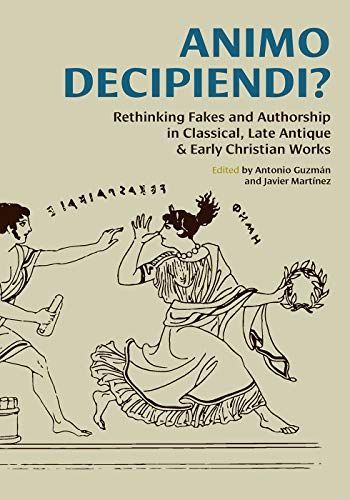
Animo Decipiendi? Rethinking fakes and authorship in Classical, Late Antique, & Early Christian Works
Many new and fruitful avenues of investigation open up when scholars consider forgery as a creative act rather than a crime. We invited authors to contribute work without imposing any restrictions beyond a willingness to consider new approaches to the subject of ancient fakes, forgeries and questions of authenticity. The result is this volume, in which our aim is to display some of the many possibilities available to scholarship. The exposure of fraud and the pursuit of truth may still be valid scholarly goals, but they implicitly demand that we confront the status of any text as a focal point for matters of belief and conviction. Recent approaches to forgery have begun to ask new questions, some intended purely for the sake of debate: Ought we to consider any author to have some inherent authenticity that precludes the possibility of a forger's successful parody? If every fake text has a real context, what can be learned about the cultural circumstances which give rise to forgeries? If every real text can potentially engender a parallel history of fakes, what can this alternative narrative teach us? What epistemological prejudices can lead us to swear a fake is genuine, or dismiss the real thing as inauthentic? Following Splendide Mendax, this is the latest installment of an ongoing inquiry, conducted by scholars in numerous countries, into how the ancient world-its literature and culture, its history and art-appears when viewed through the lens of fakes and forgeries, sincerities and authenticities, genuine signatures and pseudepigrapha. How does scholarship tell the truth if evidence doesn't? As the Cyclops is munching on the comrades of Odysseus, is he lulled into thinking that any creatures so easily deceived must be too stupid to accomplish meaningful deception themselves? Sentimental tradition reads the Odyssey and identifies the blind bard Demodokos, singing his tales at the court of Alkinoos, to be Homer's own self-portrait. But what if we thought about the blind Cyclops in the same way? How does scholarship evaluate the truth content of evidence from cultures long vanished in languages called dead? How does a writer of fiction obtain the trust of a reader?